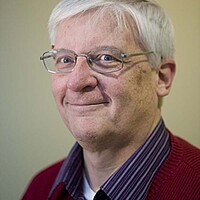Good Reads: From West Bank housing, to the Bard’s women, to baseball’s first bets
He’s the nephew of Munib al-Masri, sometimes called the “Palestinian Rothschild” and perhaps the world’s richest Palestinian.
But Bashar Masri has considerable resources of his own, and the Palestinian-born, US-educated entrepreneur is pouring them into the largest private-sector project (and what must surely be the most intriguing) taking place in the West Bank. Begun in 2010, Rawabi (“hills” in Arabic) is “the first planned city in Palestinian history,” a development that could “generate thousands of jobs and build a model that can apply across the West Bank,” writes Aya Lowe for Narratively, an online journalism site.
Six hundred families have already moved into Rawabi, and the eventual population is expected to reach 40,000 residents, if Mr. Masri can find additional funding to complete the project. It includes striking architectural ideas, but its most dramatic aspect may be in the way residents are chosen and situated. “In contrast to the rest of the West Bank, where different Christian and Muslim sects often live in segregated communities, Masri says he wants to ensure a completely mixed demographic,” the piece points out. “To do so, he has introduced a policy dictating that no one can know who their future neighbor is prior to moving in to Rawabi.”
Crime in the Internet’s back alleys
One of the most appalling cybercrimes is an extension of the old payday loan scams that have long ensnared the working poor. These scams, featuring loans taken in desperation that are followed by threats and demands for ridiculously high payments, have gone online and added twists, including bogus legal fees.
For the online journalism site Matter, writer Danny Bradbury shadows a white hat hacker trying to track down the scammers. Mike Davis “is a digital Merlin,” Mr. Bradbury writes, who works his magic online. He watches as Mr. Davis sets out bait for the scammers, creating an online identity as a fictitious older workingwoman. Eventually a carefully concealed trail is tracked back to a possible scamming suspect. But the article shows why even the FBI has a hard time collaring these elusive criminals, who are able to hop quickly between the nooks and crevices of the Internet.
Shakespeare, an uneasy ally for women
Goneril. Rosalind. Desdemona. Lady Macbeth. And, of course, Juliet, the undisputed star of “Romeo and Juliet.” The plays of William Shakespeare are filled with intriguing women characters (though played by men or boys onstage during his lifetime). During this spring celebration of the 450th anniversary of Shakespeare’s birth, revisiting the Bard’s women through 21st-century eyes makes for fascinating reading. “Virginia Woolf wrote that ... ‘man has Shakespeare & women have not,’ ” writes Stefanie Peters at The Millions, an online magazine. “This is true. At the same time, this is not true.”
Was Shakespeare an early advocate for women? (But what about “The Taming of the Shrew”?)
“The history of women interacting with Shakespeare’s plays is also the history of women’s rights, suffrage, and of the feminist movement,” Ms. Peters adds. “It is a history of women being silenced and of finding ways to speak out anyway. Shakespeare has been, and is, an uneasy ally in this history. He complicates but also enriches our idea of what a woman is.”
We still love Rosalind and Juliet today, she says, because “they don’t read on the page or on the stage like young men in drag, trying to show what a second gender is. These are true-hearted women. Juliet is frank, and petulant, and brave, and chatty, and loving. She is authentic.”
Tree huggers are happier
Want to be happier? Go to the trees. New research ties proximity to parks and other green spaces to better mental health, writes Ben Schiller at Fast Company. People living in places with more trees are likely to be happier, with the association between the two “significant and sizable,” according to one recent study. The findings could be used to argue for more investment in green spaces. “ ‘Our work indicates that “greening” could be considered a potentially low-cost, high-return investment among urban and regional planners to positively influence population mental health,’ ” Mr. Schiller quotes the study’s authors as saying.
Rare footage of baseball history
The Chicago Black Sox gambling scandal forced a massive effort to restore baseball as an honest game. Now several minutes of actual Pathé News footage from one of those 1919 World Series games has been literally unearthed. Among the highlights, writes Tim Marchman at Deadspin, are pans of the Chicago stadium and fans, as well as shots of a huge crowd back in New York following the game via telegraph on a giant mechanical scoreboard. Crooked Sox pitcher Eddie Cicotte doesn’t bother to try to field a ground ball or back up home plate, an “astonishing thing to see,” Mr. Marchman writes. The footage was found among a cache of newsreels discovered during construction of a hockey rink in the Canadian Yukon. At last we can see for ourselves a little of a World Series that “was the precise moment when the [gambling] problem became too obvious to ignore, and which forced baseball to decide whether or not it would be a level game.”







